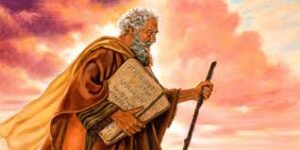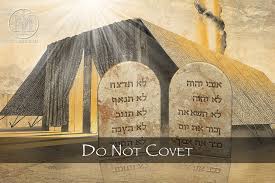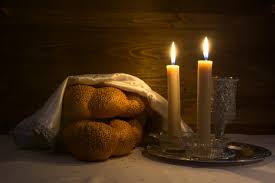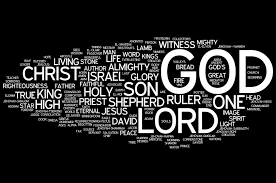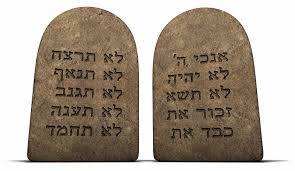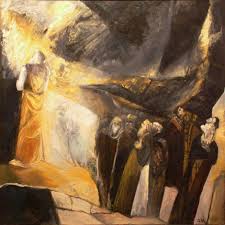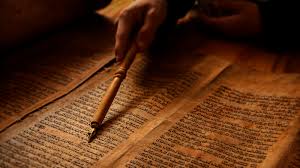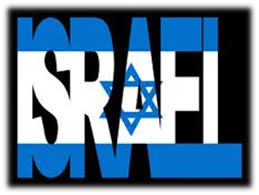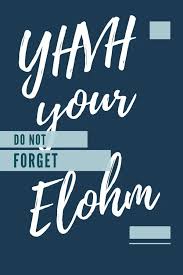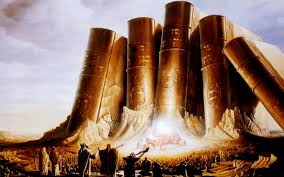Bw – Sh’ma Isra’el 6: 4-9
Sh’ma Isra’el
6: 4-9
Sh’ma Isra’el DIG: What does the Sh’ma mean to those who love the God of Abraham, Isaac, and Jacob? What is the difference between ekhad and yahid? What did the writers of the Zohar see in 6:4? How are we to love ADONAI? How can obedience be equated with love (see John 14:21; First John 5:2)? What is the difference between echad and yahid? What two rituals came from a literal interpretation of verse 8 and 9.
REFLECT: How have these six Hebrew words impacted your life? Why do believers face Jerusalem when reciting the Sh’ma? Read Deuteronomy 5:10 and explain how perfect love flows from gratitude and devotion (and thus, obedience). In what ways do you love ADONAI with all your heart, soul, and strength? What is the evidence that God’s mitzvot are written on your heart? What letter are you writing with your life?
Loving actions spring from loving obedience.
Dear Great Father, You are awesome! How wonderful to please You! Praise You for your gracious love and holiness, which are the guiding principles behind all You ask us to do. Even before creation, You knew that man could never be good enough to enter Your holy heaven, so You predestined the path of adoption into your family. He chose us in the Messiah before the foundation of the world, to be holy and blameless before Him in love. He predestined us for adoption as sons through Messiah Yeshua, in keeping with the good pleasure of His will – (Ephesians 1:4-5). All who chose Your path of loving God as first place (Romans 10:9-10) in one’s life are given Your own righteousness. Be reconciled to God. He made the One who knew no sin [Messiah] to become a sin offering on our behalf, so that in Him we might become the righteousness of God (Second Corinthians 5:21). Praise You that getting to heaven is not about perfectly obeying every rule – for no one is perfect and all have sinned (First Kings 8:46; Second Chronicles 8:36; Romans 3:23). Going to heaven is about loving God. Love makes us want to be obedient. Loving actions will spring from our loving obedience. You are a joy to please! We love to please You! In Yeshua’s holy name and power of His resurrection. Amen
The Sh’ma is recited on every Shabbat around the world. It is considered to be the heart of Isra’el’s confession, namely that YHVH was not a pantheon of gods, but one. To Jews and Gentiles alike, the Sh’ma is a well of blessing for us today. Thus, we tell the world that there is no pantheon of deities. God alone is the sole object of our allegiance and devotion.
Sh’ma Isra’el, ADONAI Elohaynoo, ADONAI ekhaD (6:4). The letters ayin (S) and daleth (d), beginning and ending the Hebrew words for Sh’ma and ekhaD are written large to draw attention upon the thought contained within. There are no verbs, and although verbless clauses occur throughout the Hebrew bible, the construction found here has no counterpart.
And in the Sedur, is added: Barook shem k’vod, malakhooto l’olam vaed, meaning, “Blessed is the name of His glorious kingdom forever and ever.”

Hear O Isra’el, ADONAI our God, ADONAI is one (6:4). When reciting the Sh’ma we face Jerusalem, no matter where we are on the earth. Shortly after King Solomon built the Temple in Jerusalem, he prayed to ADONAI that Jerusalem be an eternal home for the Divine Presence, “When the skies are shut up and there is no rain . . . yet if [your people] pray toward [Jerusalem] and confess Your Name and turn from their sin . . . then ADONAI will send rain on the Land” (First Kings 8:35). The Talmud understands that Jews in the diaspora should face toward the Holy Land when praying, those in Isra’el should face toward Jerusalem, those in Jerusalem should face toward the Temple Mount, and those on the Temple Mount should turn toward the Most Holy Place (Talmud, Berachot 30a; Shulchan Aruch Harav, Orach Chaim 94:1). Indeed, Dani’el, who lived during the Babylonian exile, faced Jerusalem, “Now when Daniel learned that a written decree had been issued, he went into his house, where the windows in his upper room opened toward Jerusalem. Three times a day he knelt down, prayed and gave thanks before his God, just as he did before (Dani’el 6:11). Indeed, the notion that our prayers ascend to heaven through the Temple Mount is rooted in the book of Genesis, where Jacob states regarding the Temple Mount, “How awesome is this place! This is none other than the house of God, and this is the gate of heaven” (Genesis 28:17 NIV). As a result, we see that it is important to face toward Isra’el, more specifically Jerusalem, the place where the Temple and the Holy of Holies once stood.
Hear O Isra’el: This cry is heard four times in Deuteronomy (5:1, here, 9:1 and 20:3), and each time these words called the people to consider something very serious, something that would challenge the very survival of their nation.
ADONAI our God: He alone is God. The Israelites could therefore have a sense of security that was totally impossible for their polytheistic neighbors. ADONAI is not merely first among the gods, as Ba’al in the Canaanite pantheon, Amon-Ra, in Egypt, or Marduk in Babylon; He is the one and only God and as such, He is omnipotent. It is the all-powerful unique God who imposed on Isra’el the charge to love Him, thereby revealing another aspect of His character.195
ADONAI is one (6:4; also see Mark 12:29; John 10:30 and Ephesians 4:6): This verse became so ingrained in Judaism that Jews were commanded to say it in the morning and at night since the second century. In its fullness the Sh’ma is composed of three separate passages: here in Deuteronomy 6:4-9, 11:13-21, and Numbers 15:37-41. It is seen as an affirmation of the Oneness of YHVH, but here again, the veil of the curtain is torn. And behold, the curtain of the Temple was split in two, from top to bottom. And the earth quaked and rocks were split apart (Matthew 27:51). The great irony is that the Hebrew word ekhad points to a plurality within the Godhead. This is an important point for Jewish evangelism today.
There are two main words in Hebrew for one. The first is echad, referring to a compound one of essential parts. It is used over 850 times in the TaNaKh. Here are some examples: ADONAI Elohim caused a deep sleep to fall on the man and he slept; and He took one (echad) of his ribs (among other ribs) and closed up the flesh in its place (Genesis 2:21).
This is why a man leaves his father and mother and clings to his wife; and they become one (echad) flesh (Genesis 2:24). The two become one, a compounded unity.
So, Moses came and told the people all the words of ADONAI as well as all the ordinances. All the people answered with one (echad) voice of three-hundred-million people, saying, “All the words which ADONAI has spoken, we will do” (Exodus 24:3).
The second word is yahid, and refers to an absolute one. Here are some examples: An Angel of ADONAI called to Abraham a second time from heaven, and said, “By Myself I swear – it is a declaration of ADONAI – because you have done this thing, and you did not withhold your son, your only (yahid) son (Genesis 22:16). The force of this word declares that God had chosen Isaac, and only Isaac, as the son of promise. By using this word, God excluded all the other sons of Abraham, including Ishmael and Abraham’s six sons other through Keturah (Genesis 25:1-6).
Then I will pour out on the house of David and the inhabitants of Jerusalem a spirit of grace and supplication, when they will look toward Me whom they pierced. They will mourn for him as one mourns for an only (yahid) son and grieve bitterly for him, as one grieves for a first-born son (Zechariah 12:10). This prophecy links the First and Second Coming. The Rabbis teach that there are two Messiah’s (see the commentary on The Life of Christ, to see link click Mv – The Jewish Concept of Two Messiah’s). But here in the sh’ma, He is one (ekhad) and the same Person. He is the pierced one and our Savior.
However, many rabbis have seen and understood something quite unusual when they read: Sh’ma Isra’el, ADONAI Elohaynoo (plural), ADONAI ekhad (plural); barook shem k’vod, malakhooto l’olam vaed (6:4). The Zohar, a collection of rabbinical writings, and mystical commentaries on the five books of Moses, first appeared in the thirteenth century in Spain. There, in its commentary on Deuteronomy 6:4, it said something quite extraordinary. In fact, if you didn’t know it was the Zohar, you would think it was written by Messianic believers. Speaking of the three names of God mentioned in the Sh’ma, it reads: They are two, and one is joined to them, making three, and when they are three, they are one. He said to them, “These are two names of ADONAI in the Sh’ma; our God is, as it were, the signature, and when they are joined, they form one” (Soncino Zohar, Bemidbar, Section 3, page 162a).
Again, in the Zohar, “These three are one. How can the three Names be one? Only through the perception of faith: in the vision of the Ruach ha-Kodesh, in the beholding of the hidden eyes alone” (Zohar, Shemoth, Raya Mehemna, page 43b). These writers did not see the Trinity. They were not Messianic Jews, however, what that tells us is that the structure of the verse allowed them to see the possibility of the plurality within the oneness of YHVH. How could they come to the conclusion that the three, equals one? Because the Word of God itself, speaks to the nature of Ha’Shem who inspires these very words. YHVH is a compound One of essential Persons. If one does not allow for a plurality within the Godhead, then they will eventually be forced out of the Scriptures. Over and over again, in both the TaNaKh and the B’rit Chadashah, the Bible speaks of a plurality of the divinity. The Sh’ma comes just before speaking of our relationship with God the Father, God the Son, and God the Ruach. Any deviation from this truth will darken our understanding of our God. We are to know who we worship.196
Moses then develops the essence of covenantal obedience. He demands that Isra’el love YHVH with their total being. Love ADONAI your God: This appeal to love ADONAI is found ten times in Deuteronomy and nowhere else in the Torah. This wholehearted love for God is relational, like a husband’s love for his wife (Hosea 3:1), or a father’s love for his child (Hosea 11:1). Moshe piles up relatively synonymous terms to emphasize the totality of this allegiance.
With all your heart: The Jewish concept of heart refers to the core of one’s being. The book of Proverbs counsels: Watch over your heart with all diligence, for from it flows the springs of life (Proverbs 4:23).
And with all your soul: (Hebrew: nefesh). The term soul is the closest to what we would call emotion and is the word Yeshua used when He cried out in the Garden of Gethsemane: My soul is overwhelmed with sorrow to the point of death (Mattityahu 26:38a).
And with all your strength (Hebrew: meod, meaning with all the you have) (6:5). When asked: Rabbi, which is the greatest commandment in the Torah,” Yeshua said: You shall love ADONAI your God with all your heart, and with all your soul, and with all your mind (Matthew 22:36-39), affirming that the bedrock of our obedience arises from a whole-hearted love for God alone. This love is not by choice; it is commanded! While spontaneous love may come naturally, the Torah labels it immature. Perfect love calls for more than spontaneity . . . it requires commitment!197 Yeshua taught that the truths contained in these two verses constitute the central demand of the Torah (see the commentary on The Life of Christ Jb – Which is the Greatest Commandment?).
These words, which I am commanding you today, are to be on your heart (6:6). The mitzvot, which provided the framework within which the Israelites could express their love of God, they were to be upon your heart – that is, the people were to meditate on them and reflect on God’s Words. When ADONAI writes His Words upon our hearts, we become “living letters” that others may read, and our lives can influence others to trust Messiah. How we “walk the talk” is important because it backs up what we say.198
You are to teach them diligently to your children. The book of Deuteronomy attaches a special importance to this task of teaching the family (4:9b, 6:20-25, 11:19). The mitzvot were to be the subject of conversation both inside and outside the home, from the beginning of the day to the end of the day. Speak of them when you sit in your house, when you walk by the way, when you lie down and when you rise up (6:7).199 In addition to teaching, ADONAI’s expectations extended to every part of life. God’s people must make obedience to His mitzvot obvious priority.
Two rituals came from a literal interpretation of the next two verses (I wish that the Jews would take the Messianic prophecies with the same literal interpretation). The first ritual is the wearing of the frontlets. Moses said: Bind them as a sign on your hand, they are to be as frontlets (phylacteries) between your eyes (6:8). The frontlets are made of black leather, with straps on the left hand and on the head. Yeshua talked about the abuses of the Torah-teachers and the Pharisees wearing the frontlets which were already in use in the first century. The passages selected for the frontlets were Exodus 13:1-10; 11-16, Deuteronomy 6:4-9, and 11:13-21. These four scriptures were written in Hebrew on strips of parchment with ink prepared especially for the purpose. Speaking of those who idolized this ritual Yeshua said: All their works they do to be noticed by men. They make their frontlets (tefillin) wide and their garments (tzitziyot) long (Matthew 23:1-5).
The second ritual commanded that the Israelites write two of the above scriptures on the doorposts (Hebrew: mezuzot) of your house and on your gates (6:9). The mezuzah is made of a piece of parchment from a clean or kosher animal, on which Deuteronomy 6:4-9 and 11:13-21 are written. This parchment is rolled up and inserted in a case with a small opening on the side. On the back of the parchment, you find the word Shaddai, meaning Almighty. Then the parchment is then rolled up and inserted in such a way that the Hebrew letter shin, the first letter of the word Shaddai, is visible through a small opening. Then it is affixed to the right hand side of the doorpost of a room, or a house, or a gate.200
Dear Great Shaddai – our Father! We love You! It is awesome that You describe Yourself as a plurality when You created the world (Genesis 1:1-3). You did the same when You said: Let Us make man in Our image, after Our likeness (Genesis 1:26a), and when Elohim said about the Tower of Babel, “Come! Let Us go down and confuse their language there, so that they will not understand each other’s language” (Genesis 11:7). You are a wonderful and amazing God and it is with joy that we worship and obey You. In Holy Yeshua’s name and power of His resurrection. Amen.



